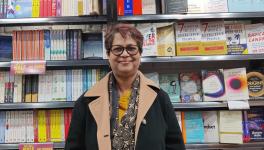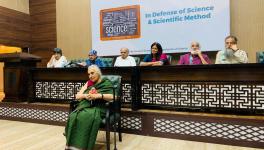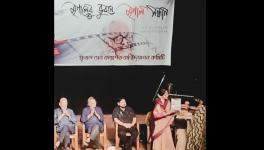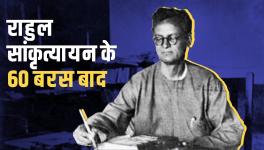OBITUARY: Ramkrishna Bhattacharya: A Marxist in Search of Indian Materialism
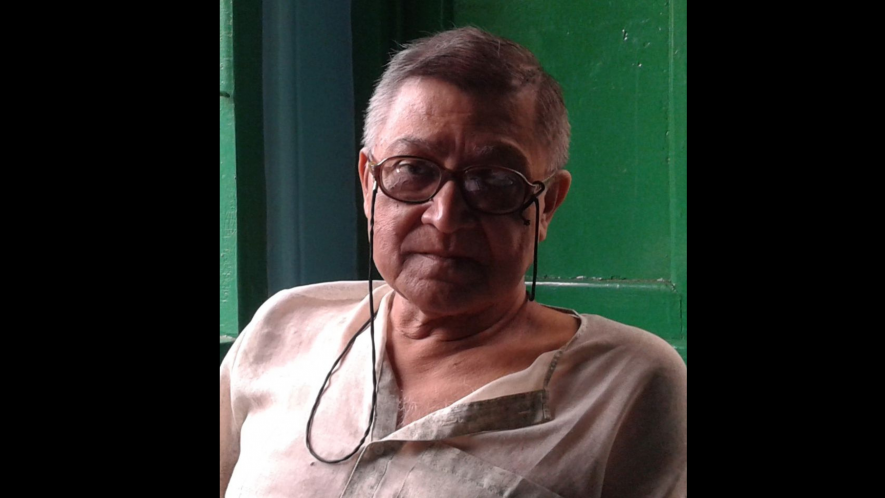
Prof Ramkrishna Bhattacharya. Image Courtesy: Wikipedia
Ramkrishna Bhattacharya, the renowned Marxist scholar and historian of materialist and rationalist thought in India, passed away in Kolkata on October 2. Ramkrishna Bhattacharya’s oeuvre spans the fields of Marxist literary criticism, comparative literature, ancient Indian philosophy, and the history of science and ideas.
Born in Kolkata on December 10, 1947, and educated at the Scottish Church Collegiate School, Vidyasagar College, and the University of Calcutta, Bhattacharya went on to become a Reader in the Department of English at Ananda Mohan College, Kolkata. He was also a Guest Lecturer at the University College of Arts and Commerce, University of Calcutta, Kolkata. Before his death, he was a Fellow of the Pavlov Institute, Kolkata, West Bengal.
Although trained in English literature, Bhattacharya’s work represented true interdisciplinary scholarship. His abiding interest in ancient Indian philosophy made him a polyglot, enabling him to access early texts in Sanskrit, Pali and Prakrit. He wrote in both English as well as his mother tongue, Bengali. A striking feature of his writing was the simplicity and accessibility of language, a style that perhaps reflected the purpose of his writing, which was to change the world. In a tribute to Rahul Sankrityayan, the legendary Marxist scholar and traveller, who Bhattacharya considered his teacher, he wrote,
“His style, I would like to assert, should be our model, for it is worth emulating for all who aim at communicating to their readers rather than impressing them with their learning. Those who write with a specific view, namely, to change the world, must adopt this style of writing and consciously eschew deliberate obfuscation or, to put it simply, learn to write Plain English or Telugu, Bangla or Hindi, or whichever language they write in.”
Scholarship on Indian Materialism
While it is not possible to straitjacket Ramkrishna Bhattacharya, given the wide span of his scholarship, it would not be incorrect to say that he was essentially a scholar of Indian materialism, second only to the Indian Marxist philosopher Debiprasad Chattopadhyaya. Bhattacharya’s endeavour to meticulously search for the different strands of materialist thought spread across texts belonging to various philosophical schools in India remains unparalleled in scholarship. He went on to establish the presence of materialist schools of thought in Indian philosophy that existed before the 6th century BCE. Remarkably, Bhattacharya often drew linkages between the origins and trajectory of materialist thoughts and proto-materialist views in different parts of the world and underlined the similarities therein.
Bhattacharya’s seminal contribution was to systematically uncover the actual aphorisms (sūtras) of the Cārvāka/Lokāyata school of thought. Cārvāka/Lokāyata, to quote Bhattacharya, “was the most uncompromising materialist school of philosophy in ancient India,” whose thoughts were distorted through history by its many opponents (including the pro-Vedic Brahminical schools, or non-Vedic Buddhist and Jain, and other philosophical systems). He asserted that “no authentic Cārvāka aphorisms have been cited by the opponents of the Cārvāka to support their view.” In a way, therefore, Bhattacharya’s mission was to rescue the system of Indian materialism.
Bhattacharya defended Cārvākas against the accusation of being ranked empiricists. He presented consistent evidence to claim that they developed a notion of inference grounded on perception. He also established the popular origins of the school of materialism in India, thus demolishing claims about its “Royal origins.” He also systematically opposed the caricaturisation of the Cārvāka/Lokāyata as being simple sensualists and hedonists, a charge that it shared with many other materialist schools across civilisations that denied the existence of God and after-life.
Reflections on Bengal Renaissance
Although Ramkrishna Bhattacharya is best known for his work on the Indian Materialist Philosophy of the Cārvākas, his reflections on Renaissance thought in colonial Bengal are equally illuminating. His interest in the Bengal Renaissance, however, emerged from the same fundamental quest for reason and rationality in the history of thought and ideas in India. Connecting the early materialist school of the Cārvāka/Lokāyata and the ideas promoted by Rammohum Roy, Derozio, Vidyasagar and other Bengal social reformers of the nineteenth century, Bhattacharya drew a line of continuity in rationalist thought in the Indian subcontinent. The Indian variety of rationalism for him always stood against the authoritarianism of the Vedas, and thus Bhattacharya rejected the debate around rationality as a mere Eurocentric project.
A Mentor
For many young scholars and students in India, Ramkrishna Bhattacharya was also a mentor who was candid in his criticism while being kind and empathetic. During a visit to the Tata Institute of Social Sciences (TISS), Bhattacharya introduced many young historians and students (including the authors) to the broader network of people working on ancient Indian philosophy. His motivation as a scholar never prevented him from exchanging words of encouragement and advice with those who sought his help. He was always willing to work with students. He collaborated with some young scholars at TISS to develop a series on Krishi-Sahitya (agricultural literature) in Bengali from the early twentieth century, based on archival records of Bengali periodicals dedicated to agriculture.
Towards the end of his life, he worked at great speed on a range of issues, including the origins of geometrical design and theory in ancient India (based on the Śulbasūtras, Vedic texts that depict geometric calculations necessary for the proper construction of a ritual arena), the censure of Euripides materialist views by Aristotle, aesthetics in Marxist philosophy, and commentaries on ancient Tamil literature (based on the Manimekalai, a Tamil-Buddhist epic).
A Political Life
Ramkrishna Bhattacharya led a life well-lived, dedicated to pursuing knowledge towards political change. At the core of Bhattacharya’s academic pursuit lay a deep political conviction in Marxism. Soon after the fall of the Soviet Union, through one of his popular writings, he declared that his belief in Marxism remained unaltered. His close ties with the Indian Left, through research of its historical roots and contemporary philosophy, remained unscathed until the end.
In his life and work, he was unmistakably guided by the need for rational inference and evidence. His commitment to the real world around us embodied the famous Cārvāka/Lokāyata aphorism that he discussed often:
While life is yours, live joyously;
None can escape death’s searching eye:
When once this frame of ours they burn,
How shall it ever again return? (E.B. Cowell’s translation)
For Ramkrishna Bhattacharya, seeking rationality in our past was ultimately the very political act of unshackling what Rahul Sankrityayan termed ‘dimagi gulami’ or ‘mental slavery’, when referring to the variety of Indian nationalism that is built on blind faith in an unquestionable glorious past. At a time when irrationality and myth-making hold the reins of power, the work and contribution of Ramkrishna Bhattacharya remind us that the rationalist project, indeed, is not separate from our struggles for equality.
Get the latest reports & analysis with people's perspective on Protests, movements & deep analytical videos, discussions of the current affairs in your Telegram app. Subscribe to NewsClick's Telegram channel & get Real-Time updates on stories, as they get published on our website.













